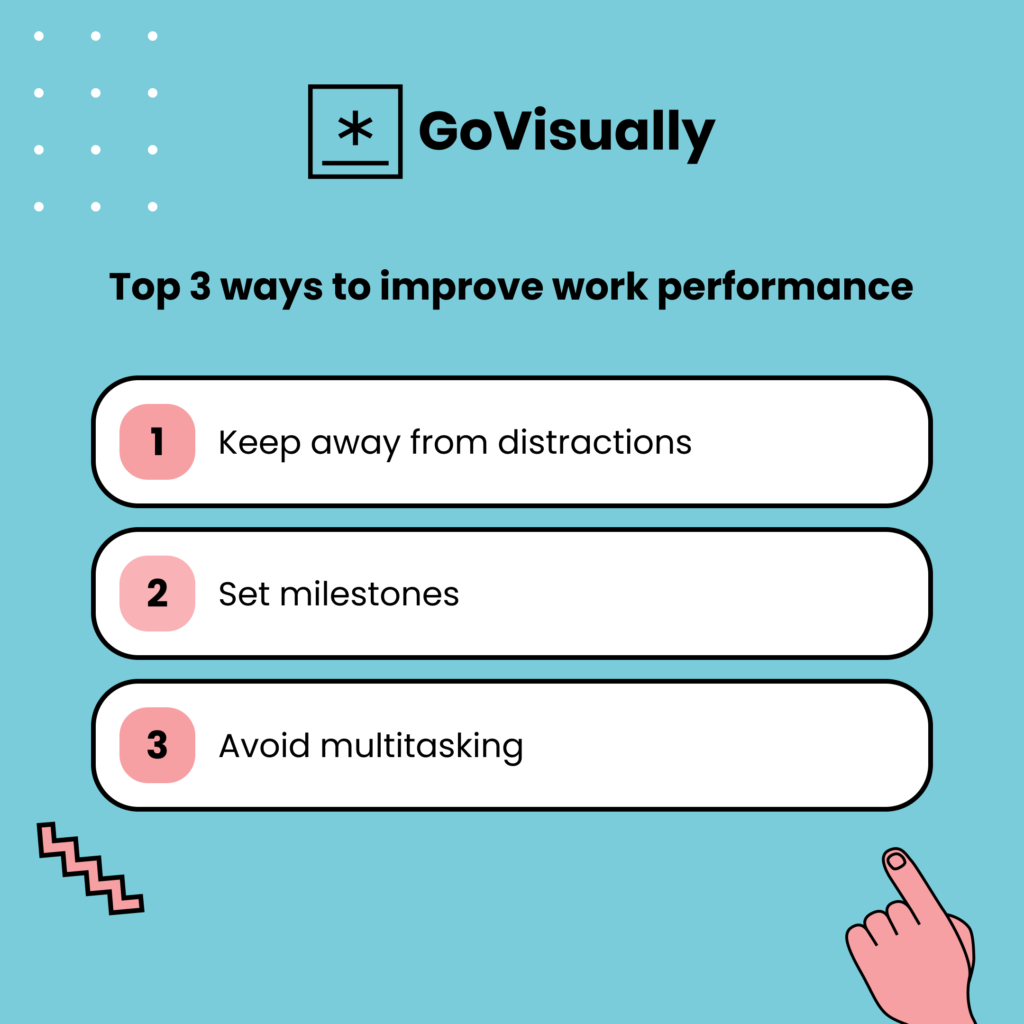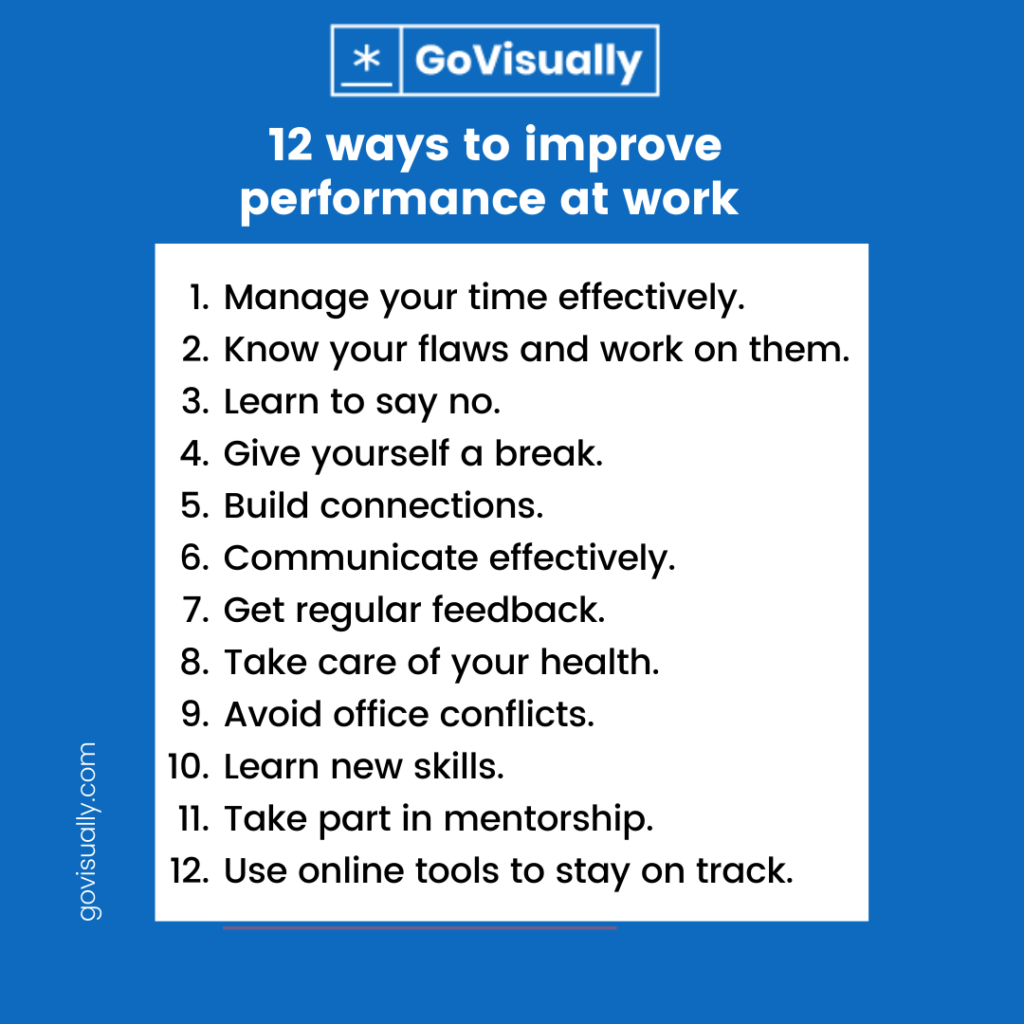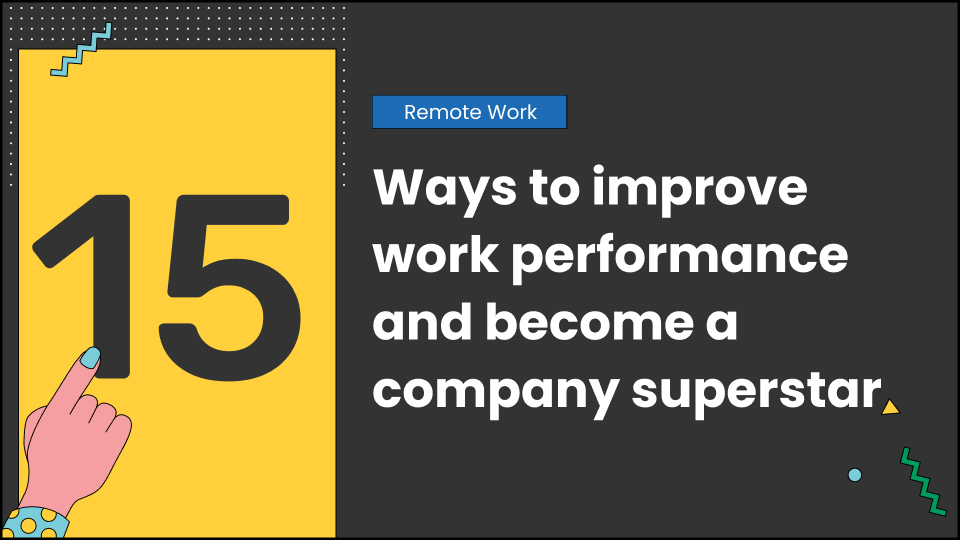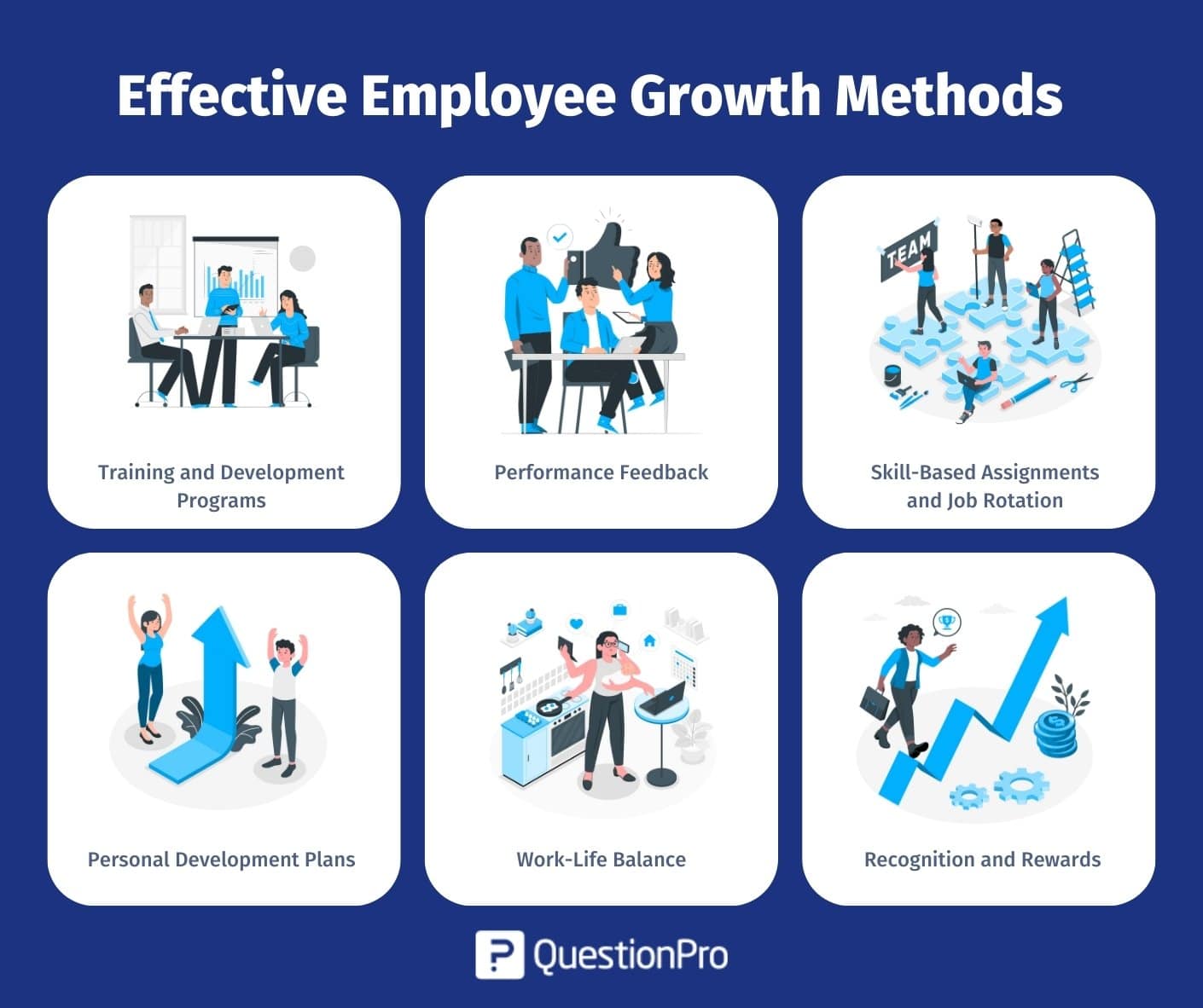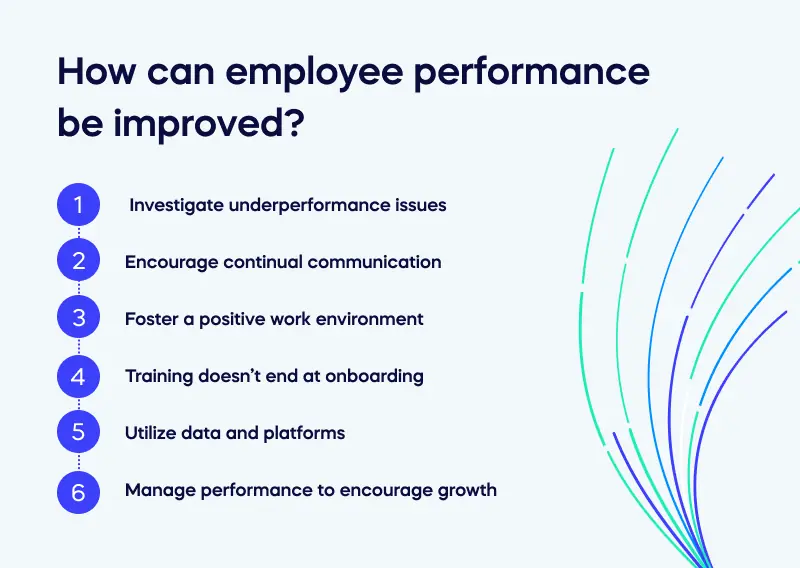Top 3 Ways An Employee Can Improve Work Performance

Are you a value-conscious employee looking to boost your performance without breaking the bank? We understand the need to maximize your potential while being mindful of your resources. This review focuses on actionable strategies and cost-effective tools to help you excel at work.
Why Employee Performance Matters
Improved employee performance benefits everyone. For employees, it leads to increased job satisfaction, career advancement, and potentially higher earnings. For employers, it translates to increased productivity, better quality of work, and a more successful business.
However, enhancing performance doesn't always require expensive training programs or fancy gadgets. Often, small changes in habits and the strategic use of readily available resources can yield significant results.
Top 3 Ways to Improve Work Performance
We've identified three key areas where employees can focus their efforts to see a tangible improvement in their performance:
- Effective Time Management
- Skill Development & Continuous Learning
- Optimizing the Workspace for Productivity
1. Effective Time Management
Time is a precious resource. Mastering time management allows you to prioritize tasks, reduce stress, and accomplish more in less time.
Effective time management includes techniques like the Pomodoro Technique, Eisenhower Matrix (urgent/important), and using to-do lists strategically.
Product Shortlist: Time Management Tools
- Budget-Friendly: Google Calendar (Free), Trello (Free plan), Todoist (Free plan)
- Mid-Range: Asana (Paid plans), Clockify (Free time tracking with paid upgrades)
- Premium: Microsoft To Do (Included with Microsoft 365), OmniFocus (Mac & iOS only, paid)
Detailed Reviews:
Google Calendar (Free): A widely used, cross-platform calendar application. It is great for scheduling meetings, setting reminders, and sharing calendars with colleagues. Its integration with other Google services makes it a powerful, free time management tool.
Trello (Free Plan): A visual project management tool using Kanban boards. Trello is ideal for managing tasks, collaborating with teams, and tracking progress. The free plan is sufficient for individual use and small teams.
Asana (Paid Plans): A more robust project management platform with features like task dependencies, timelines, and advanced reporting. While it has a free version, the paid plans offer more features for serious project management.
Practical Considerations:
Experiment with different time management techniques to find what works best for you. Prioritize tasks based on importance and urgency. Don't be afraid to say no to additional commitments if you're already overloaded.
2. Skill Development & Continuous Learning
The job market is constantly evolving. Investing in continuous learning ensures you stay relevant and competitive.
Skill development can include online courses, workshops, conferences, and on-the-job training. Focus on skills that are in demand and align with your career goals.
Product Shortlist: Skill Development Resources
- Budget-Friendly: Coursera (Free courses available, paid for certificates), edX (Free courses available, paid for certificates), YouTube (Free tutorials and courses)
- Mid-Range: Udemy (Affordable courses on a wide range of topics), LinkedIn Learning (Subscription-based access to a vast library of courses)
- Premium: Skillshare (Subscription-based creative courses), MasterClass (High-quality courses taught by industry experts)
Detailed Reviews:
Coursera (Free Courses Available): Offers a wide range of courses from top universities and institutions. While certificates often require payment, many courses can be audited for free. This is an excellent option for budget-conscious learners.
Udemy (Affordable Courses): Udemy provides a vast marketplace of courses at often discounted prices. Check for sales and promotions to get the best deals on the skills you want to learn. Always read reviews before purchasing a course.
LinkedIn Learning (Subscription-Based): Integrated with LinkedIn, it offers a personalized learning experience. The subscription grants access to a wide variety of professional skills courses. Ideal for professionals looking to upgrade their skills.
Practical Considerations:
Set realistic learning goals and allocate time for learning each week. Choose courses that are relevant to your current role or future career aspirations. Seek out opportunities to apply your new skills on the job.
3. Optimizing the Workspace for Productivity
Your physical workspace significantly impacts your focus and efficiency. A well-organized and comfortable workspace can boost your productivity and reduce distractions.
Optimize your workspace by decluttering, investing in ergonomic equipment, and creating a comfortable and inviting environment. Minimizing distractions like noise and visual clutter is also important.
Product Shortlist: Workspace Optimization Tools
- Budget-Friendly: Desk organizer, ergonomic keyboard and mouse (entry-level options), noise-canceling headphones (entry-level options)
- Mid-Range: Monitor stand, ergonomic chair (mid-range options), adjustable desk lamp
- Premium: Standing desk, high-end ergonomic chair, professional noise-canceling headphones
Detailed Reviews:
Desk Organizer (Budget-Friendly): A simple desk organizer can make a huge difference. Keeps pens, papers, and other essentials organized, freeing up valuable desk space.
Ergonomic Keyboard and Mouse (Entry-Level): Investing in even a basic ergonomic keyboard and mouse can reduce strain and improve comfort. Look for split keyboards or vertical mice for maximum benefit. Check for sales for better deals.
Ergonomic Chair (Mid-Range): A good ergonomic chair provides lumbar support and promotes proper posture. Look for adjustable features such as seat height, backrest angle, and armrests.
Practical Considerations:
Prioritize ergonomics to prevent discomfort and potential injuries. Declutter your workspace regularly to minimize distractions. Personalize your workspace with items that make you feel comfortable and motivated.
Side-by-Side Specs Table with Performance Scores
| Feature | Time Management (Trello Free) | Skill Development (Coursera Free) | Workspace Optimization (Desk Organizer) |
|---|---|---|---|
| Cost | Free | Free (audit option) | $10 - $20 |
| Ease of Use | High | Medium | High |
| Impact on Performance | Medium | Medium | Low |
| Overall Value | High | High | Medium |
Performance Scores: High = 8-10, Medium = 5-7, Low = 1-4
Key Takeaways
Improving work performance doesn't have to be expensive. By focusing on effective time management, continuous skill development, and optimizing your workspace, you can significantly boost your productivity and job satisfaction.
Remember to experiment with different tools and techniques to find what works best for you. Consider your budget and prioritize the areas where you feel you need the most improvement.
Call to Action
Ready to take control of your work performance? Start by implementing one or two of the strategies discussed in this review. Explore the recommended tools and resources to find the perfect fit for your needs and budget. Start improving your work performance today!
Frequently Asked Questions (FAQ)
Q: How much time should I dedicate to skill development each week?
A: Aim for at least 1-2 hours per week. Consistency is key. Even short, regular learning sessions can lead to significant progress over time.
Q: What if my company doesn't offer any training opportunities?
A: Take the initiative to find your own learning resources online. Many free and affordable options are available. You can also propose training ideas to your manager.
Q: Is it worth investing in an expensive ergonomic chair?
A: If you spend a significant amount of time sitting at your desk, an ergonomic chair is a worthwhile investment. It can prevent back pain, improve posture, and increase comfort, leading to improved productivity. But a mid-range option may offer good value for the price.
Q: What is the Pomodoro Technique?
A: The Pomodoro Technique is a time management method that involves working in focused 25-minute intervals (called "Pomodoros"), separated by short breaks. After four "Pomodoros," take a longer break.
![Top 3 Ways An Employee Can Improve Work Performance 7 Strategies to Improve Employee Performance [That Actually Work]](https://blog.gyde.ai/content/images/size/w2000/2023/07/7-Strategies-to-Improve-Employee-Performance1.jpg)

